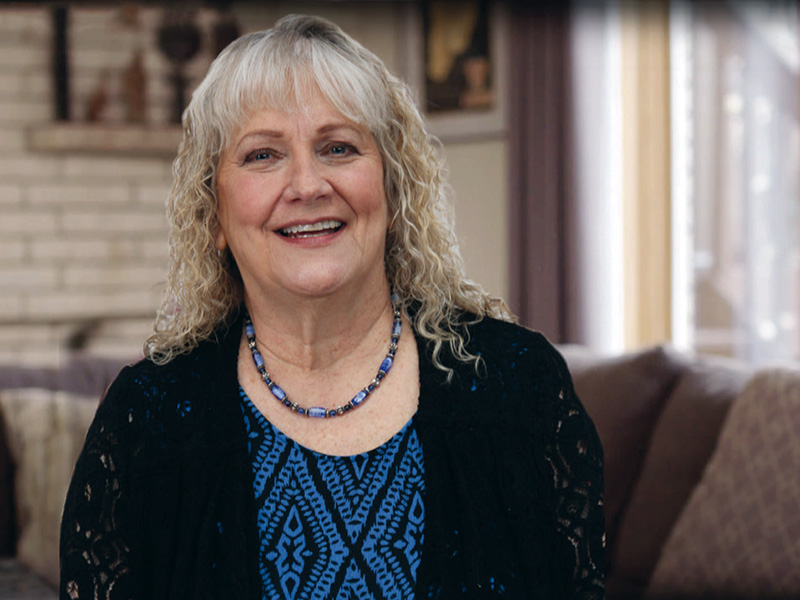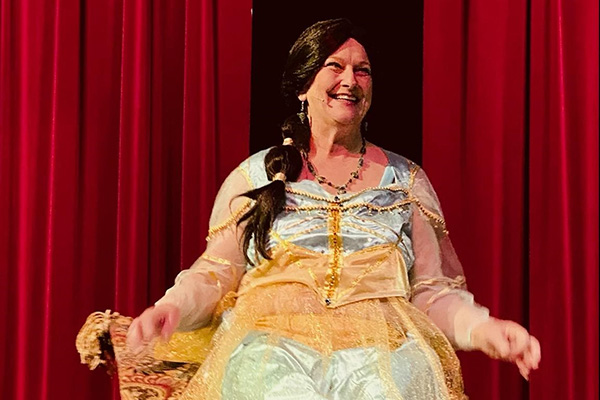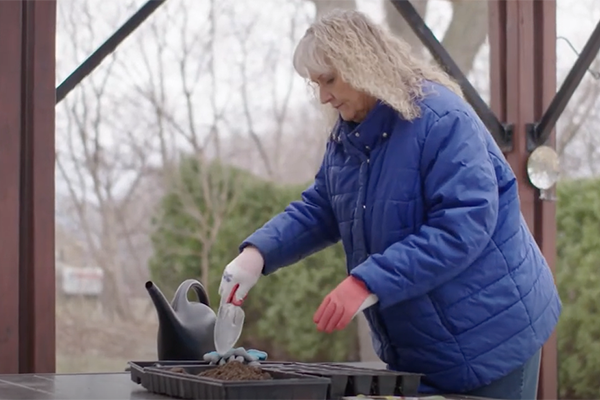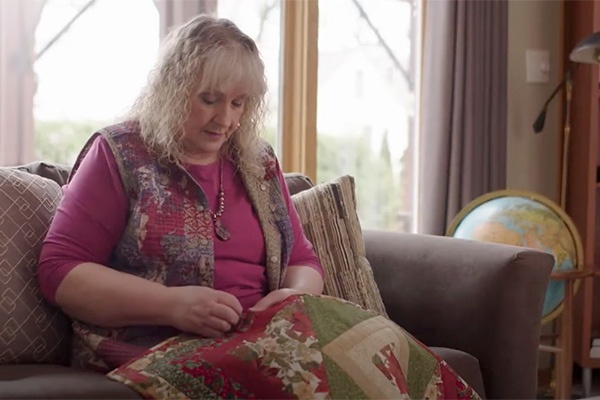After a series of surgeries and cardiac complications, C.J. was diagnosed with CSA in 2020. She struggled for months to find relief from her sleeplessness and fatigue, and even feared she was developing a serious health condition.
But since receiving her remedē System in 2021, she finally feels in control of her life again.*

Today, she reflects on her experience with CSA and with remedē—and shares some of her most poignant insights about the journey.
1. Living with untreated CSA is scary.
Before developing CSA, I could never have predicted how not sleeping would impact every aspect of my life.
I had always been a light sleeper, but after the complications from a shoulder surgery, things changed quickly.
At first, I started waking up groggy and tired, but over just a few months, it escalated into not sleeping at all. I would get just minutes of sleep over 6-7 hours.
Not sleeping began to feel physically painful—but the daytime effects were truly frightening. My cognition started to decline so quickly that I was afraid something more serious was wrong with me.
At work, I couldn’t keep up. I couldn’t remember simple things, like how to put an attachment on an email. And I was afraid to ask anybody for help because I was too embarrassed.
It was just one thing after another.
I’ve always been active in my local theater and orchestra, but I suddenly couldn’t read my sheet music fast enough to play my violin.
One night when I was performing in a play, I practiced my song and dance before going on. As soon as I stepped on stage, I couldn’t remember a word or a dance move. For 6 and a half minutes I had to make things up on stage in front of a full audience.

Eventually, I was afraid to leave the house if I wasn’t working. I was so tired that, after I got dressed in the morning, I’d have to sit down for 30 minutes to catch my breath. I’d drive somewhere and not remember how I got there.
I started to think I had dementia, like my father had. It was truly terrifying.
2. Talking about it is important—and hard.
I was diagnosed with CSA within just a few months of my symptoms becoming serious and was fortunate to have a great clinical team supporting me.
I knew, logically, that I was taking all the right steps toward treatment, but there was still a period of several months before it could be determined I was a candidate for the remedē System.
And I had no idea how unprepared I was for the psychological impact CSA would have on me.
Everyone knows about obstructive sleep apnea, but I just didn’t have any real support to help me deal with my CSA diagnosis.
I just wanted somebody to talk to about what I was going through—about what sleep deprivation does to you. I was constantly wondering, Is this normal? Is this all in my head? Am I going to wake up after I fall asleep? I was scared.
And so, after a while, I went into denial about it. I tried to pretend like nothing was wrong with me, even though it was obvious to my friends and coworkers that something was going on.
People began to notice the changes in my personality, in my performance at work.
I was afraid to ask for help because I didn’t want anybody to think that I couldn’t do my job, but then I’d get emotional or angry for what seemed like no reason. So people tiptoed around me at work. I just didn’t feel like myself. Outside of the office, I wasn’t playing my violin or auditioning for plays. My life just kind of stopped.
People clearly noticed, but nobody knew how to talk about it. Myself and everyone around me, I think we all thought, “It’s better not to say anything.”
Now, I realize how foolish that was. I should have explained what was going on and said, “I’m having a bad day.” But when you’re in the midst of it, you just don’t have that perspective.
3. You can get your life back.
Before remedē, I dreaded bedtime—I was afraid to go to sleep, because I didn’t know if I would wake up.
Now, sleeping is a pleasure.
I’ll never forget waking up one morning after getting my device and realizing that I had been dreaming. I couldn’t remember the last time I dreamt—or slept deeply enough to dream. It was an amazing milestone for me.
But it’s not just sleeping itself, it’s everything that rest gives you back.
I remember one beautiful spring day, a few months after I got my remedē System. I got up early, cleaned the garage, put a quilt on my quilt frame, and cleaned my carpets all before lunch. In the middle of this, a friend called me and I said, “I can’t talk for long, I’m going hiking later.”
I hung up with him and thought, “Wow. I haven’t had this much energy in over a year.” It was an incredible thing to realize that I was okay—and that my life wasn’t over at all.


4. You’re not alone.
When I was first going through my journey with CSA, I felt terribly alone. I wanted so badly to be able to hear from someone who could relate to what I was going through—and who could tell me that things would get better.
But today, I get to be that person to others just starting their journeys.
Through the remedē Patient Ambassador Program, I talk to people with CSA who have the same questions—and fears—that I did: Is remedē right for me? Is it worth undergoing the implantation surgery? Will I feel better?
And I welcome all of those questions—no matter how personal or trivial. Because I know from experience that it doesn’t feel trivial when it’s happening to you.
Whenever I talk to new folks through the Ambassador Program, I just tell them the truth about my experience. I encourage them to take notes, talk to their doctor, and ask as many questions as they can—because only you can decide the right path to take for your CSA.
remedē may not be the answer for everyone, but I’m just happy to be a voice of comfort along the way. It’s what I wish I had—and I hope it helps somebody else.
Individual results may vary.
Refer to the important safety information and consult with a healthcare provider to determine if the remedē System is right for you.
The remedē System is a surgically implanted device.

